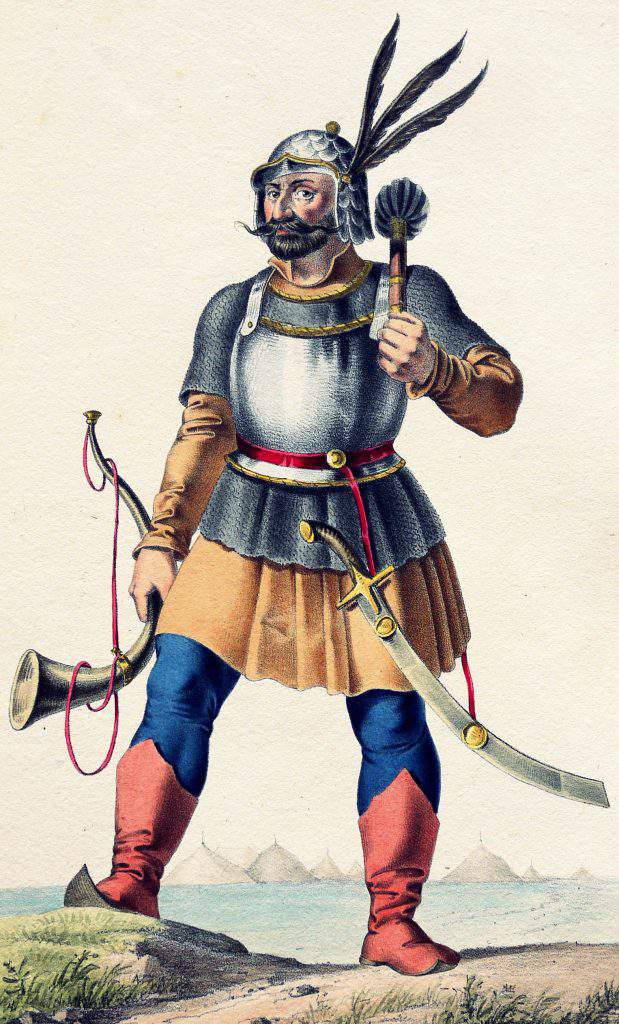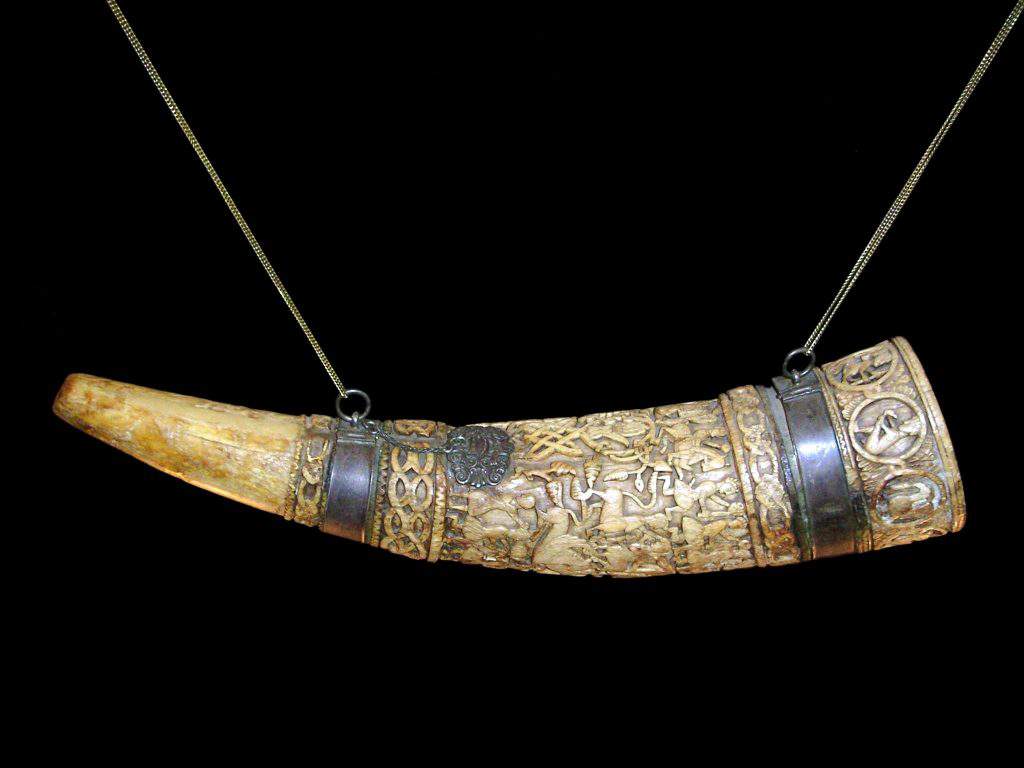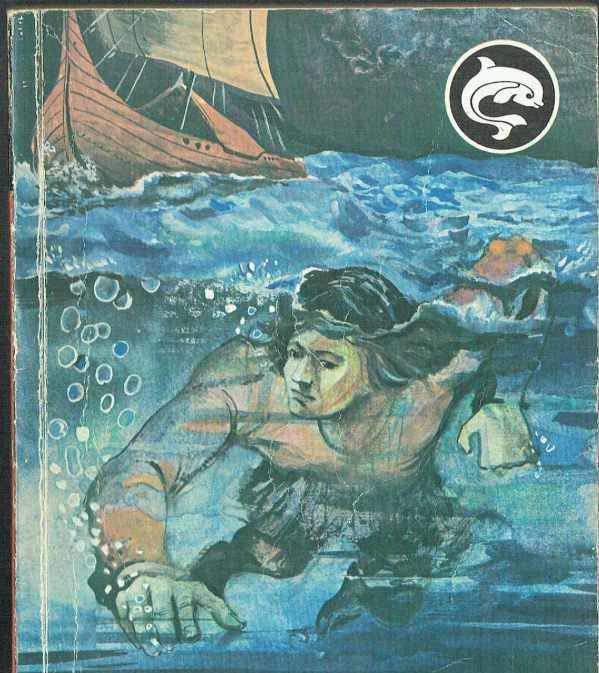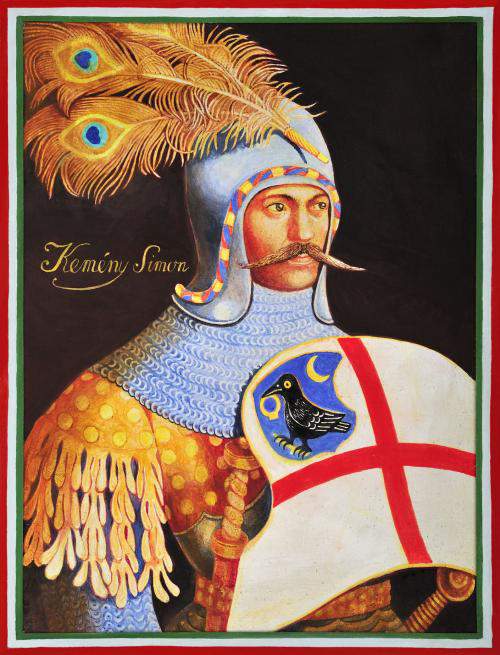The most sly Hungarians – myth, literature, history; part 6
Our candidates for today’s article are those Hungarians, who defeated the past enemies of Hungary by trick or their wit. The names on this list are well known to Hungarians because of the myths and sayings concerning their heroic deeds and sacrifices. We chose to highlight three characters today as they used their wit to triumph over their foes in marvelous ways.
If you have not yet read the previous articles of the series or you are simply interested in some of the most famous Hungarian figures, you can find out more about the Strongest (Part 1), Bravest (Part 2), Smartest (Part 3), Greatest (Part 4) and the Most Feared (Part 5) Hungarians by clicking on the previous links.
Chief Lehel

There is a precious relic in Jászberény that was once the spirit of battles, which not even every hundredth of men could blow. There are scenes of battles beautifully carved into the ivory horn which is probably the work of a Scythian ancestor of ancient times. The story behind this sacred relic is interesting. The horn accompanied its owner, Chief Lehel in every one of his battles. When he sounds the horn, his forces were invigorated by the thunderous booming which could be heard from miles away.
During the dismal battle at Augsburg, the Hungarian forces were broken, but Lehel had no time to blow his horn to gather the Hungarian army once more as the horse of the chief was stabbed and the steed fell on him. The soldiers of the enemy took his sword before Lehel could throw away his life with it and they captured the warrior. They brought him and his comrades, Ursur and Bulcsú before the triumphant Ottó. They were sentenced to death by the Germans.
The verdict did not hurt Lehel. He felt he deserved it, not for starting the battle, but for losing it. One thing grieved him, however, that Konrád was among his judges, the one whose defection caused the Hungarians to lose. Lehel, by the right of his last wish, asked for his precious horn so that he could blow it once more, to say farewell to his life.
The Emperor waved, and his men brought out Lehel’s horn. – Go on, blow your dear horn! Anyone who heard the gloomy sound of his song, their heart trembled, and their eyes filled with tears. Even the German soldiers fell on each other’s shoulders and were listening to the song with their head bowed down and their eyes full of tears. But when the gloomy song ended, something unexpected happened. Lehel spun his horn in his hand so fast that the air was whirring. Lehel then threw his horn at the Emperor with such a thunderous force that the monarch dropped dead on the spot. – Now you can execute me, – shouted the Hungarian hero – your Emperor will be my servant in the Otherworld!

If you are interested in ancient Hungarian myths, then the following article might be for you. It is about the sacred animals of ancient Hungarians.
Kund the Diver

Kund scanned the landscape behind from the castle. The Danube was calmness itself; the whole landscape was unstirred. But far in the horizon, small waves seemed to close in. A few moments later, it was evident that the army of the German Emperor was on the march. – Ships! – someone shouted.
The Emperor’s fleet approaching the castle on the Danube, carrying the reinforcements of the army. The ships harboured on the water, near the castle. The captain of the fortress was pondering, as he watched the fleet.
Suddenly a grin appeared on the face of Kund: “I was a fisherman before” – he thought and stepped before the captain. – My lord – he called him and then the serious face turned towards him listening. Kund said what he intended. The captain looked at him doubtfully at first, but then he put his hand on the shoulder of Kund. – Go ahead! – he then said.
Nothing moved in the musing night. The clumsy black stains left by the ships on the beautiful shimmering water were clearly seen from the castle walls. Kund was stealthily approaching the water behind bushes. Only a faint splash was heard, and Kund was immediately under the water. Kund soon reached the first ship. He held a reed in his mouth so that he could use it as a snorkel. He started to drill the underside of the ship. Nothing could be heard above the water, and the soldiers on the ship slept untroubled as Kund continued his work. The drill pierced the planks of the ship and the water started to rush in through the hole. He then moved on to the second ship still underwater. He succeeded in drilling the second ship as well. He made no noise the water was still so the enemy did not suspect anything. He continued his stealthy mission and move on the next barge.
But now he made a wrong move and his feet splashed the water. The guard on the ship noticed the sound and, trying to see what it was, dropped his torch into the water to discover what lurks in the depths. But Kund was sly, and he hastily swam down to the bed of the river and grabbed a rock, he was still and only moved after the torch flickered out as it touched the water.
The crew of the first ship noticed only now that their ship was sinking. The soldiers started rushing heedlessly up and down the ship, shouting as they panicked. The other ships noticed the great chaos, but no one knew what had happened. Kund was working tirelessly. The first ship tilted, and soldiers fell into the water amidst loud wailing.
Kund eventually finished his secret work, then he swam near the shore and witnessed the fruition of his work from under a bush that reached over the water. The second barge tilted, but the first was floating on its side like a dead fish. Kund then jumped out of the water and still in the cover of the night, sneaked back into the castle.
The next morning, the whole fleet has sunk, and the forces of the Emperor withdrew due to the loss of their support on the water. The defenders of the castle shouted in merriment, but Kund, due to exhaustion was wearily sleeping next to the wall under sheepskin blankets.
Simon Kemény

Mezet Bey looked upon his soldiers. His whole army stood before him, valiant janissaries and fearless Sipahi.
– The lion can only be destroyed if his heart is pierced – he said. The heart of the Hungarian army is János Hunyadi. We can only win if we capture or kill him. – So be it! – the soldiers shouted.
– Listen! Hunyadi is always in the heat of battle. He is mounted on his white horse with a silver helmet. On his shield, there is a raven holding a ring in his beak. This is how you can recognize him. – We will recognize and kill him! –the soldiers cried out.
Hunyadi was sitting in a shirt behind a stout oak table and his gaze was worried.
– Mezet Bey thinks he has to fear nothing – said the man in front of Hunyadi. He acts like the Maros is his, he steals our cattle and enslaves our children. – Enough! – said Hunyadi impatiently. Gather the army!
He stood up and his squires brought his armour, sword and ornate shield. Simon Kemény was leaning to the door jamb with his arms crossed. Suddenly, someone bumped his shoulders. It was one of his trustworthy men.
– I come from the camp of Mezet Bey – he said – The Turks want to kill Hunyadi at all costs. They said that the lion can only be killed if its heart is pierced, and they want its heart.
Simon Kemény snapped his head to what he just heard. – Are you telling the truth? – Yes, my lord, I do.
What would happen to the Hungarians without Hunyadi? What could be done? Persuade Hunyadi not to join the battle? No, that is impossible. Should they evade the battle? So that Mezet Bey will pillage alongside Maros? No! The squires helped the ornate shield on the hands of Hunyadi. Simon Kemény looked at his own shield and then on Hunyadi’s again. That’s it! I have an idea! He had a satisfied grin on his face and stalwartly stepped in front of Hunyadi. – My lord – he approached Hunyadi – We should swap our equipment and horse.
Hunyadi looked at Simon wondering. – Why would we swap our equipment?
– It is a stratagem. I will take on the Turks with a small unit head-on, and while they will focus on me, you could assault their flanks with our main army. Victory will be assured.
Hunyadi pondered for a while. – You might be right, son.
He took off his silver helm and his armour fell off of him with a loud clink. He gave his weapons to Simon as well. And they went to battle in each other’s equipment. Outside, the Hungarian soldiers welcomed the man in the silver helm – whom they thought was Hunyadi – with an uproarious cry. The soldiers did not understand why Hunyadi made Simon Kemény lead the main army.
The battle took place near the waters of Ompoly. The Turks swarmed the Hungarian leader like wasps. They did not even stop attacking when the main Hungarian army assaulted their flanks, they only wanted one thing, the leader dead. Simon Kemény fought valiantly, the best of the Turks fell around him, but for every foe he cut down, two replaced it. The circle tightened around our hero.
– Do not let them get Hunyadi! – the Hungarian soldiers cried out loud and jumped to help their leader. They fought on without end, but the number of the Turks only grew. All wanted to kill the silver-helmed leader with his raven-ornamented shield.
János Hunyadi himself saw the peril from that Simon faced. Hunyadi turned his horse towards Simon and furiously cut into the dense line of the Turks. But a spear jabbed the white horse under Simon, he wavered, struck his blade into the crowd once or twice, his silver helm gleamed once more, but he sank into the onslaught of the Turks as a sinking ship. Eventually, the horse and he stumbled over as he was unable to parry the strikes of the foe. The Hungarians were shocked seeing their leader die, while the Turks wildly shouted their battle-cries.
– Hunyadi is dead! – the Turks shouted. The Hungarians almost fell back, when they heard a thunderous cry: – Hunyadi is here! – János Hunyadi shouted as he raised his visor. The Hungarians answered with a merry ‘huj-huj’.
The Turks petrified from the sight that Hunyadi, whom they just killed is very much alive and is leading the army galloping on his horse heavily swinging his sword. The battle-line of the Turks have broken up and both the janissaries and Sipahi fled in terror. When the sun set, there was no sign of the Turks, the Hungarians triumphed over their enemy. János Hunyadi, although was tired, he looked for the body of Simon Kemény. He dismounted his black horse and kneeled next to the dead hero.
– You were a true man.
If you are interested, you can read our detailed article about Hunyadi HERE.
Featured image: From left to right; Wikimedia Commons, Cover Art of László Geréb’s Book, www.adontes.hu
Source: Daily News Hungary, nepmese.hu





